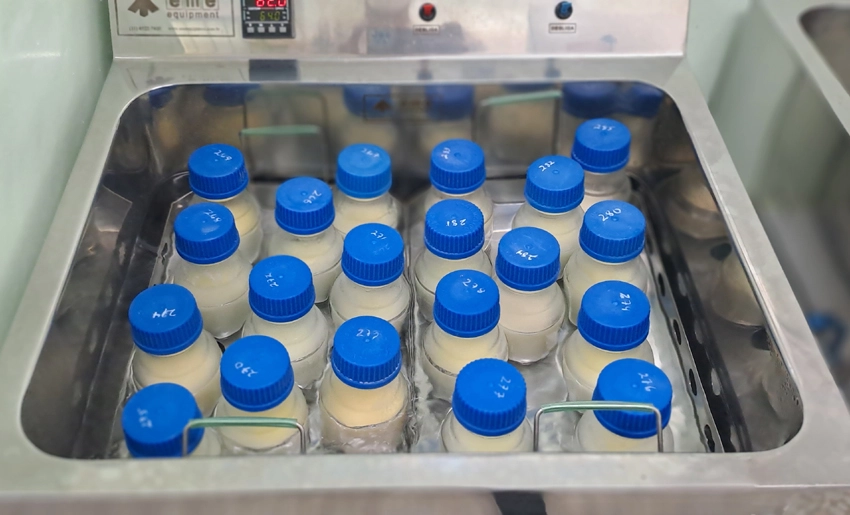A better name could not have been chosen for the breast milk bank of the Vladimir Ilich Lenin University General Hospital than Light for Life, because every day, thanks to the work carried out there. It contributes to perpetuate the miracle of existence.
Of the 42 years that María Sara Cabrera Parra has been working as a nurse, the last decade stands out in her professional performance due to the satisfaction of being part of the work team linked to this bank, belonging to the Neonatology service.
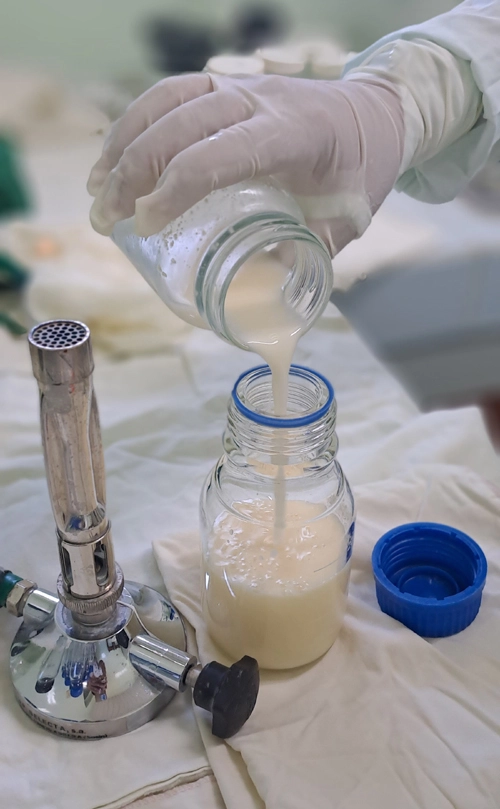
“Here we do a very nice job, mothers come to donate milk voluntarily, they only have to be healthy, with the desire to collaborate with those who need this milk because they are underweight, because their mothers are in critical condition or because their mother’s milk does not have enough calories.
“I feel gratitude with my work and the best example is to see how the day after giving milk to a child we are interested in knowing if he/she gained weight and tolerated it. That is the guarantee that we are doing our job well,” she said, who during her working life has accumulated vast experience in intensive care wards, in the comprehensive care of tiny children and critical patients.
While breast milk is important in the first year of life, it is vital from the first hours after birth.
In that sense, Cabrera Parra explains that external donors are not enough and the bank needs them. She remembers with special affection a child who did not have his mother because she died in childbirth and how important that milk was for him. Cases like this motivate her to continue with her work despite being over retirement age, “I will continue here, I plan to continue working and I have not thought about retiring because I like my work, helping children. I continue because what I do gives me great satisfaction”.
In this milk bank, the food to be pasteurized is obtained essentially in two ways: from new mothers who are admitted to the maternity ward and from those who are discharged from the hospital and go home. Donated milk is collected there and then processed. Hence the importance of making known how interested mothers can become donors.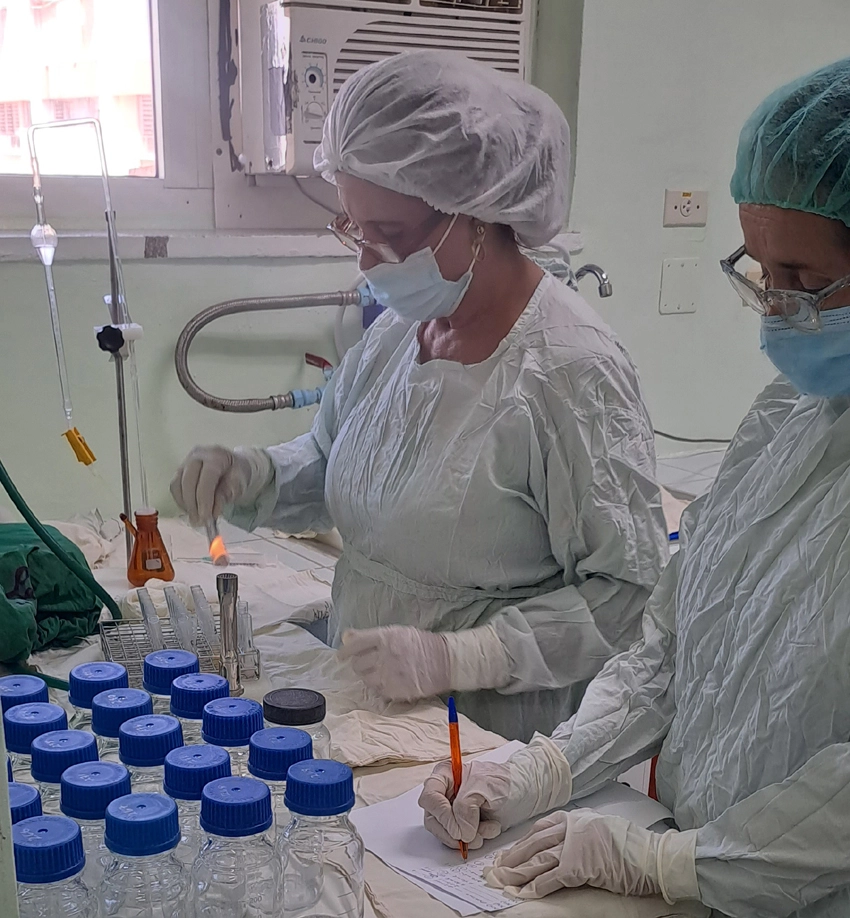
Specialist nurses at the milk bank perform a physical-chemical study of the food, as part of the pasteurization process. Photo: Courtesy of Dr. Yasmin Susel Rodriguez.
In this regard, Yasmin Susel Rodríguez Rodríguez, a doctor who works at the human milk bank. Urged all mothers whose children are under two years old and have enough milk production to become breast milk donors.
“They do not have to leave the comfort of their homes, we go to their homes and provide them with all the necessary means for the donation, such as sterile bottles and we take care of collecting the milk once a week. Those interested in donating contact their family doctor or nurse to make their intention known. We look for the mechanisms to reach them and thus help with this altruistic task to all the children who need it”.
This precious food is subjected to a pasteurization process before being given to the children in Neonatology who need it -either due to low weight, heart disease, digestive tract malformations, vulnerability to infections, metabolic disorders, surgery or because they are unable to obtain the food from their mothers.
Referring to the above, Dr. Yasmin Susel details that the milk cannot have any germ or alteration. It must comply with specific hygienic measures such as sterilization, freezing and before thirteen days after milking it is processed.
Prior to pasteurization, a physical, chemical and microbiological study is carried out to verify that there is no bacterial growth. This process must be carried out very strictly, for which two specialized nurses dedicate up to five or six hours to study two liters of milk to ensure that when it reaches the newborn’s mouth there is no problem, it does not cause gastroenteritis or cause any harm.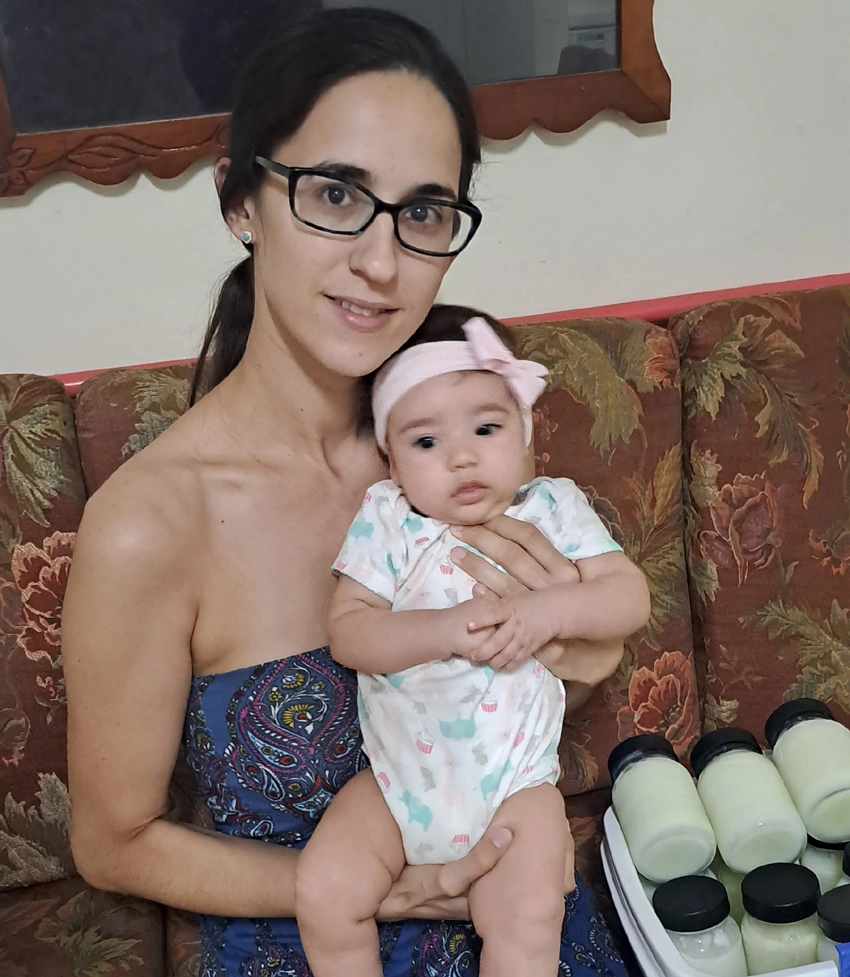
Mother from Holguin, external milk donor with her baby, who has donated 39 liters to the bank. Photo: Courtesy of Dr. Yasmin Susel Rodríguez.
“We have a very nice experience with a mother who is currently pregnant with her third baby and was our donor in the two previous pregnancies. She contacted us to express her desire to continue being a milk donor when she has her third child. We are pleased that they feel motivated and identified with this altruistic gesture full of love. What kindness and humanism these mothers have for not only feeding their children, but also contributing to the feeding of other children”, she concluded.
Linfa Rosa Gómez Santin is the founding nurse of this milk bank, “I have been working here since 2012, since its inauguration. Its main function is to support and protect breastfeeding. When the mothers arrive to donate, they must wash their hands and breasts and then go on to the milking process, with everything sterile. The milk is classified into colostrum, transition milk or mature milk and is put in freezer for approximately 13 or 14 days, where the pasteurization process begins”.
In Cuba, the first breast milk banks were opened first in the western provinces and then in the rest of the country. Today there are milk banks in Pinar del Río, Havana, Matanzas, Cienfuegos, Camagüey, Las Tunas, Santiago de Cuba, Granma and Holguin.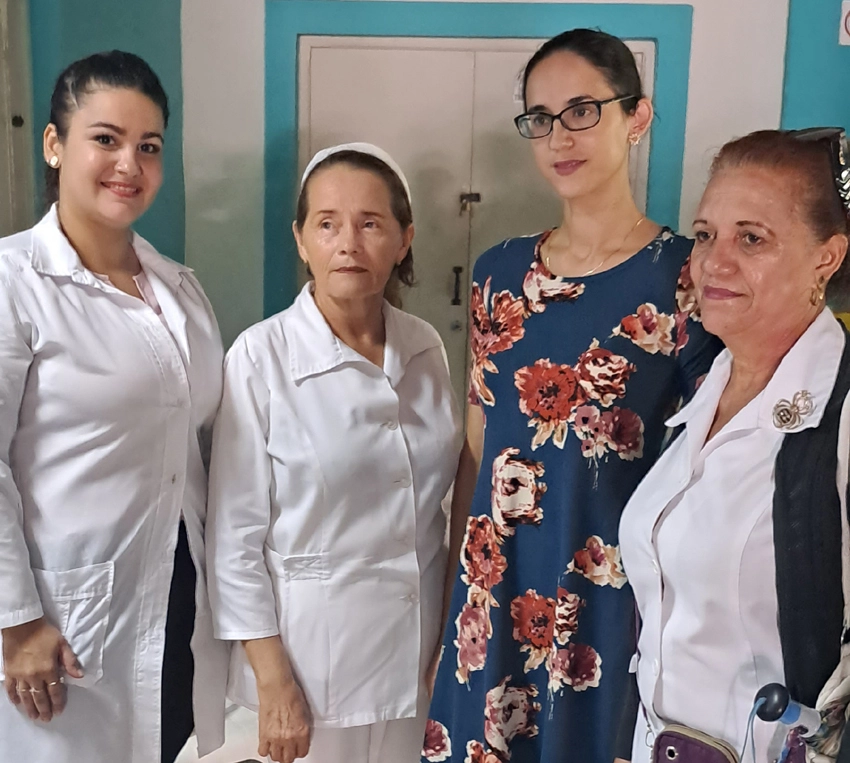
Breast Milk Bank professionals with a donor mother. Photo: Courtesy of Dr. Yasmin Susel Rodríguez.
Linfa Rosa recognizes that her work experience has been very good because she is satisfied with the change in the children when they start to receive this milk, the weight gain is evident. So that the pasteurized milk besides being used in the “Lenin” has arrived in other occasions to patients of the therapy rooms and to the Neonatology Service of the Pediatric Hospital Octavio de la Concepción de la Pedraja, because sometimes it is indicated to children who do not tolerate another type of milk, neither yogurt.
“To continue with this experience, we need more donors,” she said.
Every day the contribution of this milk bank is decisive in the care of children committed to life. So much so that every year it is estimated that it contributes to the survival of hundreds of newborns in this northeastern territory. For the health system in Holguin to have one of Cuba’s breast milk banks is an opportunity that, as its name indicates, gives light for life.
Translated by Aliani Rojas Fernández
- The 4th edition of the Master’s Program in Natural Medicine will begin in Holguin - 16 de January de 2026
- Blood Bank Inaugurated at Holguin Military Hospital - 15 de January de 2026
- Holguin Cancer Center Plans to Incorporate Endoscopic Surgery in Urology - 14 de January de 2026

